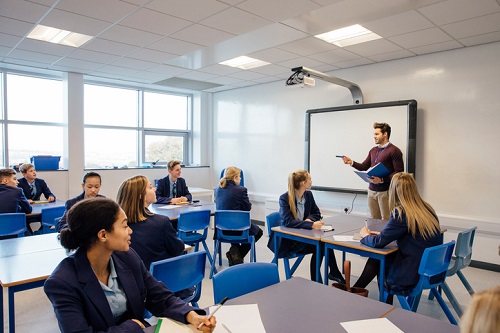
There is a good reason why Living Faith Lutheran Primary School is regarded as a leader in the education industry by futurists around the globe.
At the school, located in Murrumba Downs, Queensland, has restructured the vertically organised Australian curriculum horizontally, combining subjects into six-month-long projects focused on solving real-world complex problems, with students presenting their solutions to authentic audiences, and business and industry experts.
The school’s senior staff have spoken at London’s FutureFest, the school’s facilities have been showcased at Singapore’s Xperience Asia, and various school staff speak regularly of the school’s innovation journey, and the philosophy behind it, at events across Australia.
And last year, the school was awarded as one of The Educator’s Innovative Schools for 2017.
Like many schools, Living Faith students have access to a large range of digital devices and software, such as iPads, Spheros, Apple TV and Google Classroom. However, the meaning and purpose of technology in the school setting far exceeds devices themselves.
As the school’s principal, Jane Mueller, points out, technology in the school setting exists not as an entity in itself, but as “a tool to reimagine and redefine learning in order to achieve outcomes that were previously inconceivable”.
Mueller says that like many schools, Living Faith students have access to a large range of digital devices and software, but the meaning and purpose of technology in the school setting far exceeds devices themselves.
“Technology in the school setting exists not as an entity in itself, but as a tool to reimagine and redefine learning in order to achieve outcomes that were previously inconceivable,” Mueller told The Educator.
Mueller says that in the current age of automation, it is well documented that students need to develop a different skill-set than those of the industrial model of education.
“Tech companies are reporting that technical skills and deep subject matter knowledge are not what will secure applicants a job. After all, evidence shows these skills and knowledge are likely to become obsolete within months,” Mueller said.
“Rather, employers are crying out for staff who are adaptable, creative, innovative and globally aware.”
Mueller says companies are “seeking employees with emotional intelligence, a growth mindset, grit and a compassionate heart”.
“Our responsibilities, as educators, are to nurture and grow these skills and qualities in our students, who will become the problem-solvers of the future. Technology helps us get there,” she says.
Related stories:
Preparing the natives of the Fourth Industrial Revolution
Do schools need to rethink BYOD?


